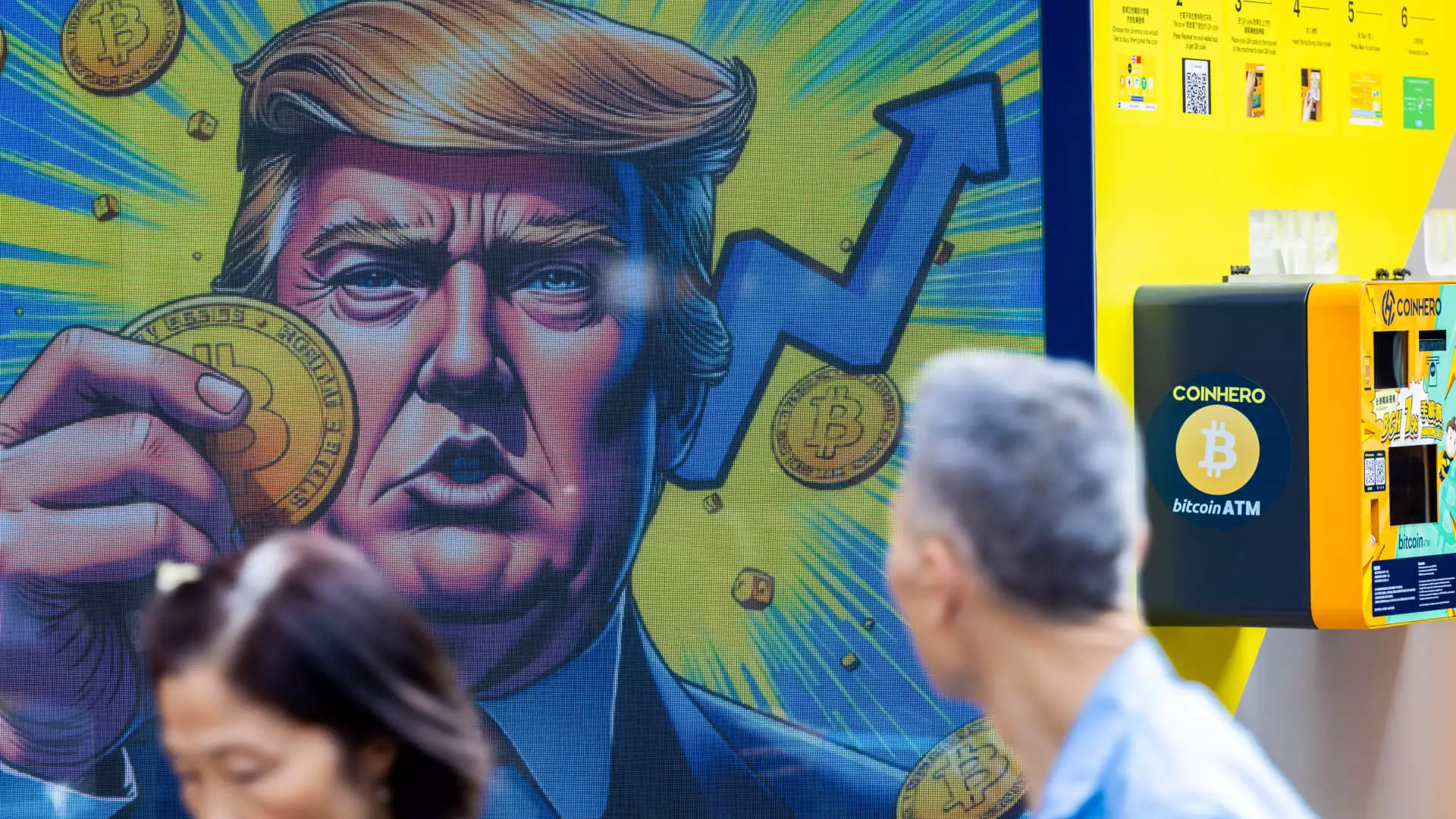In the ever-evolving landscape of politics, the intersection of digital currencies and campaigns reflects not only the innovation of our times but also the ethical dilemmas facing current leadership. The $TRUMP cryptocurrency token, launched under the endorsement of former President Donald Trump, recently garnered attention by amassing nearly $900,000 in trading fees—an enticing profit derived from its correlation to the political realm. This impressive figure became public following an announcement promising an exclusive dinner with Trump to the top 220 investors. The potential for a meal with a sitting former president transcends typical promotional strategies, invoking the question of whether this venture is legitimate or a troubling depersonalization of political access.
The symbolism behind such promotions cannot be overstated. In a world increasingly dominated by superficial connections, this event encapsulates a concerning trend where monetary investment directly translates to social and political influence—blurring the lines between financial gain and political capital.
Tokenomics and the Reality of Memecoins
In recent times, the allure of memecoins has captivated novices and seasoned investors alike. Memecoins like $TRUMP derive their value less from concrete utilities and more from internet culture and speculative hype. Platforms like Chainalysis estimate that the total trading fees from the $TRUMP token have surged past $324 million since its inception, raising eyebrows among critics who consider the entrepreneurial approach of Trump politically opportunistic. Most notably, around 80% of the supply of this token remains under the control of the Trump Organization, suggesting a tightly-knit network resembling an oligopoly within the crypto market.
Despite claims regarding safety protocols like a vesting schedule intended to protect retail investors, suspicion looms over these arrangements. Rather than enabling a fair marketplace, they are perceived as tools for insiders to maintain leverage and control—potentially frustrating the very participants they claim to engage. The dinner event adds another layer of complexity to this narrative, as it appears to lock in wealthy investors through exclusive experiences, further reinforcing power dynamics amid a landscape already fraught with inequality.
Political Criticism and Ethical Concerns
Amidst the financial success of Trump’s repetitious crypto ventures is a persistent backlash from political analysts and advocacy groups. Critics such as Democrats Sen. Chris Murphy and Sen. Elizabeth Warren have labeled this promotional strategy as a chilling embodiment of “pay-to-play” politics, forcing us to confront whether this business model compromises presidential integrity. Their outcry echoes through political spaces, suggesting that the mere act of commodifying access could be interpreted as a breach of trust between the president and the public.
Ethics in leadership have traditionally been guided by an implicit understanding akin to an unwritten contract, with former presidents adhering to norms of transparency and integrity. Yet, in the case of Trump, established ethical standards seem more like guidelines than obligations. Delaney Marsco, Director of Ethics at the Campaign Legal Center, underscores the disconcerting reality that these activities, while potentially questionable, may not be legally forbidden. This troubling loophole introduces a paradox: can a leader sell access to power without infringing on the law?
Global Ripple Effects
The wealth generated from the $TRUMP token is intertwined with geopolitics, as some early investors reportedly maintain links to international exchanges and sources that operate under scrutiny, potentially diminishing the trustworthiness of the token itself. Concerns surrounding foreign influence are palpable, given past allegations of undue manipulation in American electoral processes. The foremost question remains: do capitalist endeavors such as these inadvertently endorse foreign interests at the cost of national integrity?
Trump’s dual role—as a political figurehead and a digital entrepreneur—creates an intricate tableau where his influences oscillate between leveraging market forces and managing political aspirationalism. Furthermore, given the current regulatory environment, Trump has repositioned himself as a “champion” of cryptocurrency despite earlier admonitions during his first term. The pendulum swing towards cryptocurrency as an economic revolution aligns with a rhetoric aimed at antagonizing an oppositional party striving for regulation and oversight.
The emergence of tokens like $TRUMP exemplifies the blurred lines between political maneuvers and personal profit, evoking a crucial dialogue on the need for ethical accountability surrounding the intersection of politics and cryptocurrency. As Trump presses further into the digital asset space—backing ventures like World Liberty Financial—it raises alarms concerning a broader pattern of commercialization that could redefine trust in public office. Campaign finance reform and regulatory discipline seem imperative to curtail what could easily resemble an era of institutionalized corruption, wherein the wealth generated from political office morphs into an engine of private gain, leading us down an uncertain path for democracy. The time to address these pressing issues is now; our political future may depend on it.


Leave a Reply